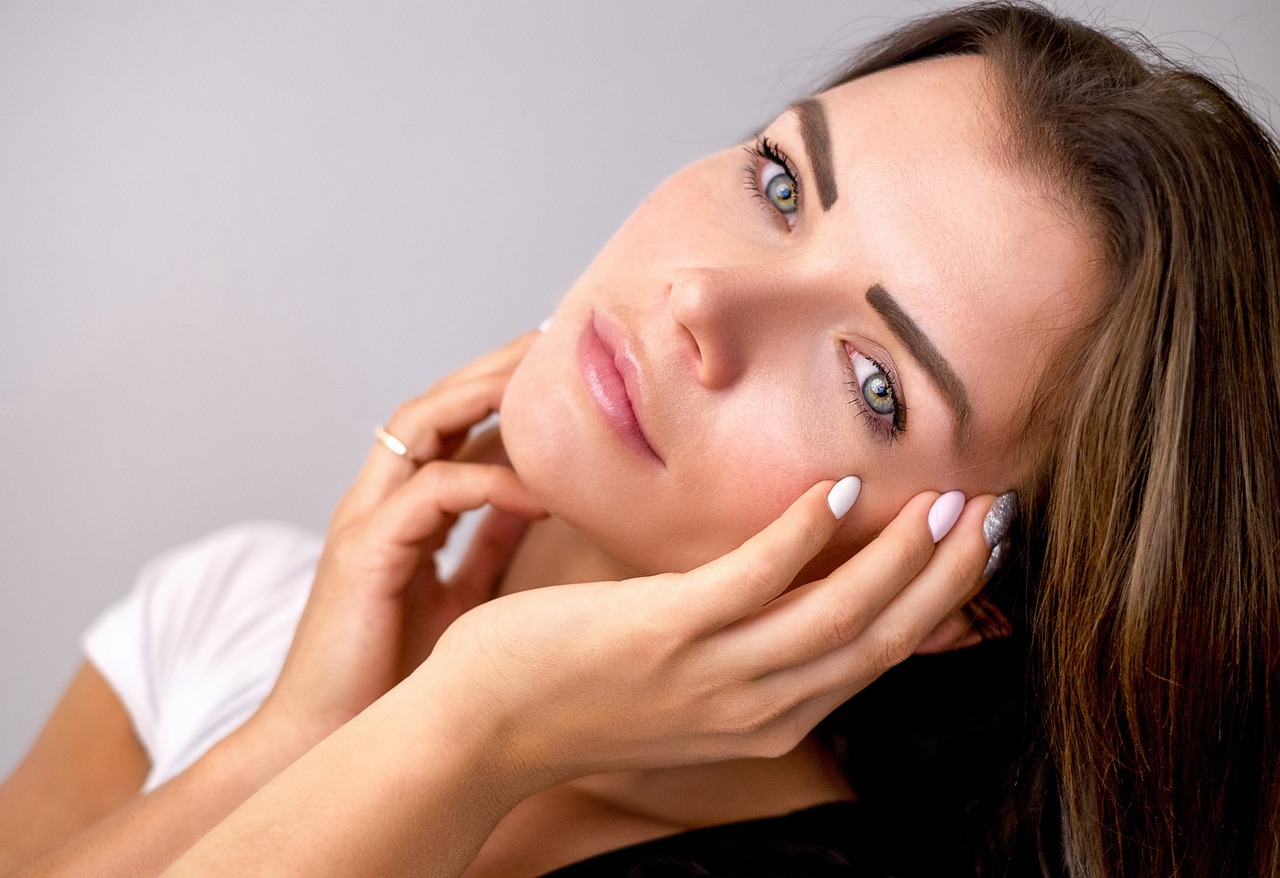Natural methods for healing sun-damaged skin include using aloe vera, coconut oil, and antioxidants like vitamin C. Staying hydrated and protecting your skin from further sun exposure are also essential. These strategies can help soothe inflammation and promote skin regeneration effectively.
Understanding Sun-Damaged Skin
Sun-damaged skin is a common issue that affects many individuals, especially those who spend significant time outdoors without proper protection. Prolonged exposure to ultraviolet (UV) rays can lead to various skin problems, including sunburns, premature aging, and an increased risk of skin cancer. Understanding the effects of sun damage is vital for effective healing and prevention.
UV rays are classified into two main types: UVA and UVB. UVA rays penetrate deeply into the skin and are primarily responsible for aging, while UVB rays cause sunburn. Both types contribute to skin damage and may lead to serious health issues if not adequately addressed.
To further understand the impact of sun exposure on the skin, consider the following statistics:
| Skin Damage Type | Percentage of Affected Individuals |
|---|---|
| Premature Aging (Wrinkles, Fine Lines) | 90% |
| Sunburn | 50% |
| Skin Cancer | 1 in 5 Americans |
These numbers highlight the importance of taking care of your skin and implementing natural healing methods when damage occurs. Beyond avoiding the sun’s harmful rays, incorporating specific remedies can promote recovery and improve overall skin health.
Natural Remedies for Healing Sun-Damaged Skin
Several natural methods can help soothe and heal sun-damaged skin. These remedies not only provide immediate relief but also support long-term skin health. Below are some effective options to consider:
- Aloe Vera: Known for its soothing properties, aloe vera gel can provide immediate relief from sunburn. It hydrates the skin and promotes healing due to its anti-inflammatory properties.
- Coconut Oil: This natural moisturizer helps restore skin hydration. It contains fatty acids that can enhance skin barrier function and reduce inflammation.
- Honey: Honey is a natural humectant that draws moisture into the skin. Its antibacterial properties also help prevent infection in damaged areas.
- Green Tea: Rich in antioxidants, green tea can reduce inflammation and promote skin repair. Applying cooled green tea bags to affected areas can be particularly soothing.
Essential Tips for Protecting Your Skin
In addition to using natural remedies, adopting specific practices can help protect your skin from further damage. Here are some essential tips:
- Stay Hydrated: Drinking plenty of water keeps your skin hydrated from within. Aim for at least eight glasses of water daily.
- Use Sunscreen: Always apply a broad-spectrum sunscreen with an SPF of at least 30 before going outdoors, even on cloudy days.
- Avoid Peak Sun Hours: Limit sun exposure between 10 a.m. and 4 p.m. when UV rays are strongest.
- Wear Protective Clothing: Long sleeves, hats, and sunglasses can shield your skin from harmful UV rays.
By combining natural remedies with these protective measures, you can effectively combat the effects of sun damage and promote healthy skin. Regularly assessing your skincare routine and making necessary adjustments will also contribute to long-term skin health. Stay tuned for more in-depth methods and tips in the following sections.
Understanding the Skin’s Healing Process
The skin is a remarkable organ that possesses the ability to heal itself, but the process can be complex and varies from person to person. Understanding how the skin heals after sun damage is crucial for applying effective treatments. When the skin is exposed to UV rays, it undergoes several changes that lead to inflammation and cell damage.
Initially, sun damage triggers an inflammatory response. The body sends white blood cells to the affected area to begin repairing the damage. This healing process includes the regeneration of skin cells, which can take weeks to months, depending on the severity of the damage.
One important factor in skin healing is the role of collagen. Collagen is a protein that provides structure and elasticity to the skin. Sun exposure can break down collagen, leading to wrinkles and sagging skin. Fortunately, certain natural methods can help stimulate collagen production, aiding in the healing process.
Natural Ingredients That Promote Healing
Utilizing specific natural ingredients can significantly enhance skin recovery after sun exposure. Here are some potent options:
- Vitamin C: This powerful antioxidant promotes collagen synthesis and helps repair damaged skin. Incorporating vitamin C-rich foods or serums can accelerate healing.
- Vitamin E: Known for its moisturizing properties, vitamin E can help reduce inflammation and promote healing in sun-damaged skin.
- Aloe Vera: As mentioned previously, aloe vera not only soothes but also contains vitamins and minerals that aid in cell regeneration.
- Jojoba Oil: This oil mimics the skin’s natural sebum and provides deep hydration. It can help restore moisture and improve skin texture.
- Calendula: With anti-inflammatory and antimicrobial properties, calendula can help soothe irritated skin and promote healing.
Dietary Considerations for Skin Health
The foods you consume can impact your skin’s ability to heal from sun damage. A balanced diet rich in antioxidants, vitamins, and healthy fats can support skin repair and overall health.
Consider including the following foods in your diet:
- Berries: Blueberries, strawberries, and raspberries are high in antioxidants that combat oxidative stress caused by UV exposure.
- Leafy Greens: Spinach and kale contain essential vitamins and minerals that support skin health and repair.
- Fatty Fish: Salmon, mackerel, and sardines are rich in omega-3 fatty acids, which help maintain skin elasticity and hydration.
- Nuts and Seeds: Almonds, walnuts, and chia seeds provide healthy fats that promote skin moisture and reduce inflammation.
- Citrus Fruits: Oranges, grapefruits, and lemons are excellent sources of vitamin C, essential for collagen production.
The Importance of After-Sun Care
After spending time in the sun, implementing a proper after-sun care routine is essential for minimizing damage and promoting healing. Here are some effective steps for after-sun care:
- Cool Down: Taking a cool shower or bath can help soothe sunburned skin. Avoid hot water, as it may exacerbate irritation.
- Apply Moisturizers: Use natural moisturizers like aloe vera gel or lotions containing shea butter to hydrate and soothe the skin.
- Use Anti-Inflammatory Products: Look for products containing ingredients like chamomile or calendula to calm inflammation.
- Avoid Further Irritation: Stay away from harsh skincare products that may irritate your skin further. Instead, opt for gentle formulations.
By understanding the healing process of your skin and incorporating natural remedies, dietary choices, and proper after-sun care, you can effectively promote recovery from sun damage. These strategies not only help heal existing damage but also lay the foundation for healthier skin in the future.
Home Remedies for Sun-Damaged Skin
In addition to the dietary considerations and after-sun care practices, there are several home remedies that can be beneficial for healing sun-damaged skin. These solutions often utilize common household ingredients that possess soothing and restorative properties.
Beneficial Home Remedies
Here are some effective home remedies to consider for alleviating the effects of sun damage:
- Cucumber: Cucumber has a high water content and cooling properties that can help reduce inflammation. Slice a cucumber and place the slices directly on sunburned areas for relief.
- Oatmeal: Oatmeal can soothe irritated skin. Create an oatmeal paste by mixing ground oats with water. Apply it to the affected areas and let it sit for 20 minutes before rinsing off.
- Yogurt: The probiotics in yogurt can help calm inflamed skin. Apply plain yogurt directly to sun-damaged areas and leave it on for 30 minutes before washing off.
- Apple Cider Vinegar: This remedy may help restore the skin’s pH balance. Dilute apple cider vinegar with water and apply it to the skin using a cotton ball. Rinse after a few minutes.
- Cold Milk: The proteins in milk can help soothe irritated skin and provide moisture. Soak a cloth in cold milk and apply it to the affected areas for 15-20 minutes.
Importance of Hydration for Skin Recovery
Staying hydrated is crucial not only for overall health but also for the skin’s recovery process. Adequate hydration helps maintain skin elasticity and promotes cell regeneration, which is essential after sun exposure.
When your body is dehydrated, your skin can become dry, flaky, and more prone to irritation. To enhance your hydration efforts, consider these tips:
- Drink Water Regularly: Aim to consume at least eight glasses of water daily. Carrying a reusable water bottle can encourage you to drink more throughout the day.
- Infuse Your Water: Adding fruits like lemon, cucumber, or berries can make drinking water more enjoyable while providing additional nutrients.
- Eat Water-Rich Foods: Incorporate foods with high water content into your diet, such as watermelon, oranges, cucumbers, and celery.
- Avoid Excessive Alcohol and Caffeine: Both can lead to dehydration. If you consume these beverages, make sure to balance them with additional water intake.
Professional Treatments for Severe Sun Damage
If your sun damage is significant, you may want to consider professional treatments. While natural remedies are effective for mild cases, more severe damage may require specialized care. Here are some common professional treatment options:
- Topical Prescription Creams: Dermatologists may prescribe creams containing retinoids or corticosteroids to promote skin healing and reduce inflammation.
- Chemical Peels: This treatment involves applying a chemical solution to the skin to remove damaged outer layers, promoting new skin growth.
- Laser Therapy: Laser treatments can help reduce pigmentation, improve skin texture, and stimulate collagen production.
- Microdermabrasion: This non-invasive procedure exfoliates the outer layer of skin, improving appearance by encouraging new cell growth.
Protecting Your Skin Long-Term
Preventing further sun damage is just as important as healing existing damage. Establishing a long-term skincare routine can significantly reduce the risks associated with sun exposure.
Consider implementing these long-term strategies:
- Regular Skin Checks: Periodically examine your skin for any changes or irregularities. Early detection of skin issues can lead to better outcomes.
- Sunscreen Application: Make it a habit to apply sunscreen daily, regardless of the weather or planned outdoor activities.
- Limit Tanning Beds: Tanning beds expose the skin to harmful UV rays and should be avoided to prevent further damage.
- Consult a Dermatologist: Schedule regular check-ups with a dermatologist to ensure your skin remains healthy and assess any concerns promptly.
By combining home remedies, hydration strategies, professional treatments when necessary, and long-term protective measures, you can effectively manage and heal sun-damaged skin while fostering a healthier complexion moving forward.
Integrating a Holistic Approach to Skin Health
To achieve the best results in healing sun-damaged skin, it is essential to adopt a holistic approach that encompasses both internal and external factors. This means not only focusing on topical treatments and remedies but also considering lifestyle choices, emotional well-being, and overall health.
Stress can significantly impact skin health, leading to flare-ups and exacerbating existing issues. Engaging in stress-reduction activities such as yoga, meditation, or regular exercise can benefit your skin as well as your overall health. Additionally, sufficient sleep is vital for skin repair and rejuvenation. Aim for 7-9 hours of quality sleep each night to support your skin’s healing processes.
Choosing the Right Skincare Products
Selecting suitable skincare products is crucial for maintaining healthy skin and preventing further damage. Here are some tips for choosing the right products:
- Opt for Gentle Formulations: Look for products labeled “hypoallergenic” or “fragrance-free.” These formulations are less likely to irritate sensitive skin.
- Look for Natural Ingredients: Ingredients such as aloe vera, chamomile, and green tea can provide soothing effects without harsh chemicals.
- Prioritize Hydration: Choose moisturizers that contain hyaluronic acid or glycerin to attract moisture and keep your skin hydrated.
- Avoid Harsh Exfoliants: While exfoliation is essential for removing dead skin cells, using harsh scrubs can worsen sun-damaged skin. Instead, opt for gentle chemical exfoliants like lactic acid or glycolic acid.
Regularly reassessing your skincare routine will help you adapt to your skin’s changing needs over time. As seasons change or as you age, your skin may require different types of care and attention.
Staying Informed About Skin Health
Knowledge is power when it comes to skin health. Keeping informed about the latest research, trends, and recommendations in dermatology can empower you to make better decisions regarding your skin care. Consider subscribing to reputable skincare blogs, following dermatologists on social media, or reading scientific articles related to skin health.
Additionally, engaging with communities that focus on skincare can provide support and shared experiences. Online forums or local skincare groups can be excellent sources of information and encouragement as you work towards healing your skin.
Final Thoughts
Sun-damaged skin requires a comprehensive approach for healing and recovery. By incorporating natural remedies, maintaining proper hydration, and employing effective after-sun care practices, you can significantly improve your skin’s condition. Furthermore, long-term strategies such as regular skin checks, daily sunscreen application, and avoiding tanning beds can prevent future damage.
It is essential to remember that everyone’s skin is unique, and what works for one person may not work for another. Be patient with yourself as you explore different methods of care. Consulting a dermatologist can provide personalized guidance tailored to your specific needs.
Ultimately, prioritizing your skin health through informed choices and consistent care will lead to healthier, more resilient skin. By respecting the importance of prevention and early intervention, you can protect your skin from the adverse effects of sun exposure while enhancing its natural beauty.
Embrace the journey towards healthier skin as a holistic process that combines knowledge, awareness, and self-care. With dedication and the right strategies in place, you can successfully heal sun-damaged skin and maintain its vitality for years to come.




